International Academy for Leadership
What does 'Facilitating' mean for You?
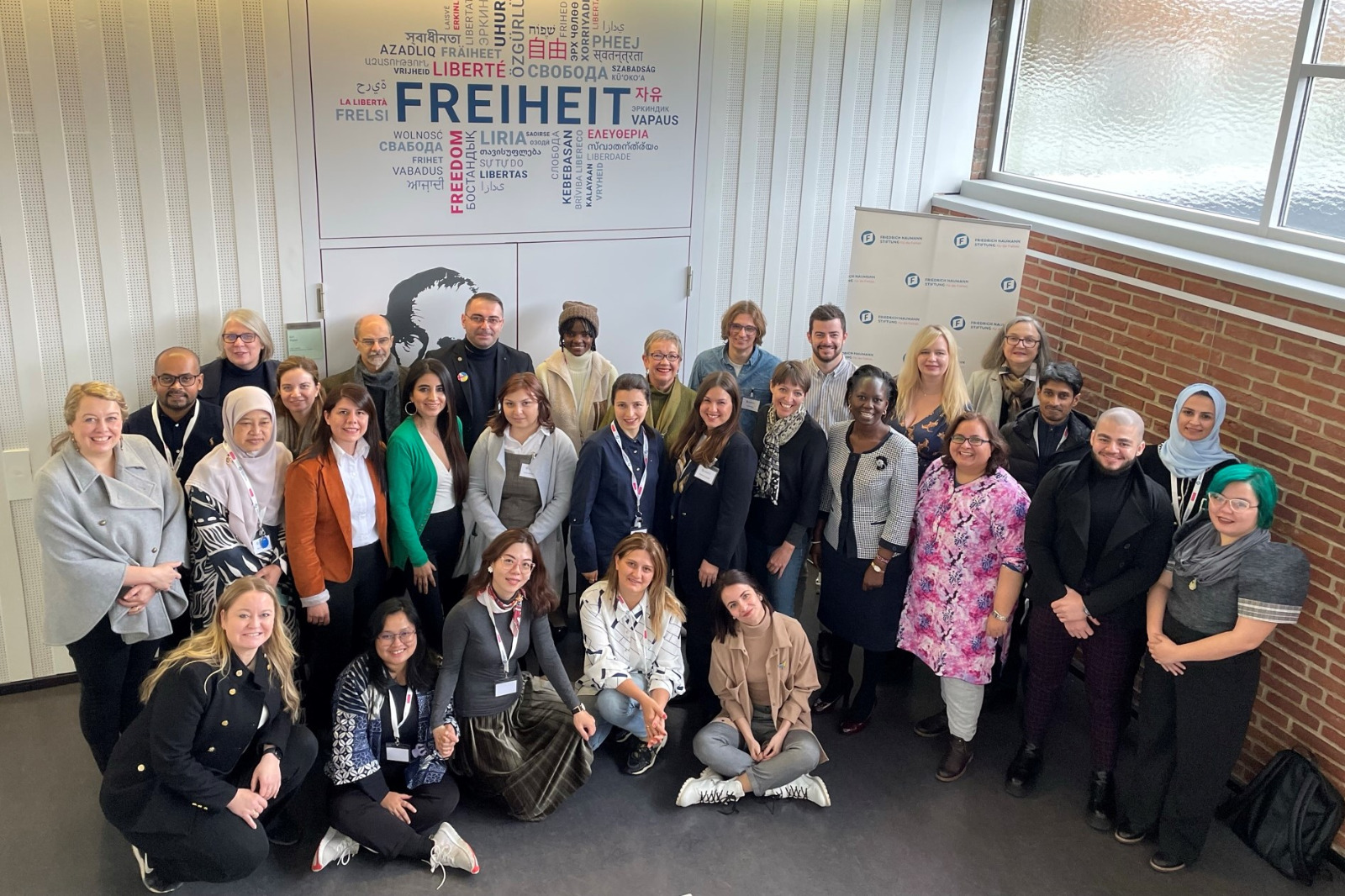
Participants for IAF Facilitation and Moderation Workshop, 27 November - 09 December 2023.
What do we need to be a good facilitator?
Trisha Lord asked this question on the first day of the 'Moderation: Facilitation and Programme Design' training in December 2022 at Theodor Heuss Academy, Gummersbach, Germany. The question had a profound effect on all of the participants at the seminar.
The Training involved 23 participants from various countries to attend a two-week seminar held by the International Academy for Leadership (IAF) at the beginning of last winter from 27 November - 09 December 2022.
At the outset, Bettina Solinger, Director of the IAF, welcomed and introduced us to the foundation's work. The session on 'Liberal Events & The Thinking Environment' was particularly noteworthy, as we learned valuable skills on how to be an effective listener and facilitator and how to integrate liberalism into facilitation.
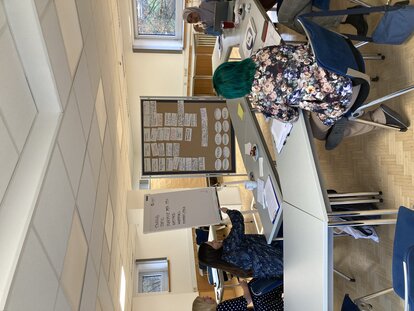
The Thinking Environment
The Ten Components of a Thinking Environment include; attention, equality, ease, appreciation, encouragement, feelings, information, difference, intelligent questions, and place.
Getting the best from people means getting their best thinking. This method means knowing how to be with people and offering them the highest quality attention based on a genuine interest in what they think and the expectation that they can think for themselves better than anyone can feel for them.
'What we always did was listen to reply. We need to listen to ignite. Getting interested in that thinking is not the same as being interested in that topic," said Trisha.
Getting the best for people also means knowing how to ask incisive questions that deftly remove limiting assumptions, how to acknowledge people's strengths and achievements-concretely and often-and how to entice them beyond an addiction to certainty and into a preference for responsible risk. It also means knowing how to build teams and groups whose members routinely treat each other well.
After the activity ended, many participants said they were trying to apply the Ten Components of a Thinking Environment in their internal organization and work.
Trisha said good thinking and engagement could build a good relationship. The three of them are the culture of a good organization.
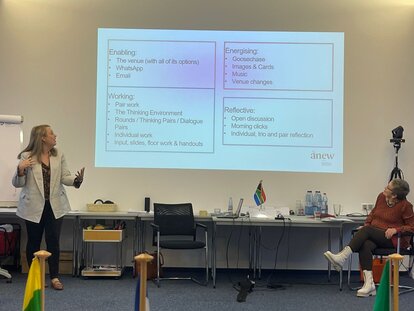
After exploring the Thinking Environment concept with Trisha, Marike Groenewald introduced The Quadrants of Gathering Design and World Cafe Exploration in the next session. Marike taught next the structure and guidelines that every facilitator and activity organizer can follow—starting from pre-activity, during activity, evaluation, and after training. Marike invited the participants to think for a moment and look again at which quadrants are the weaknesses and strengths of each internal organization.
After knowing the strengths and weaknesses, each participant forms thinking pairs and learning trios (small groups) from the same country region. In this small group, each participant shares experiences and constraints in implementing programs and activity designs in their respective organizations.
The next session that was no less interesting was how Trisha told a story about 'Empathy in Action: Exploring the Needs of Participants.'
When we talk about program design and Facilitation, we will focus on the objectives and outputs of the activities. Often in the process, we see the program's needs from the point of view of implementation carried out by a facilitator, program manager, or donor recipient. So we only focus on the beginning and end of the activity. Has the program reached its goals? Is the program output measurable? Are participants on target? Do participants understand the content of the program?
But Facilitation is more than that.
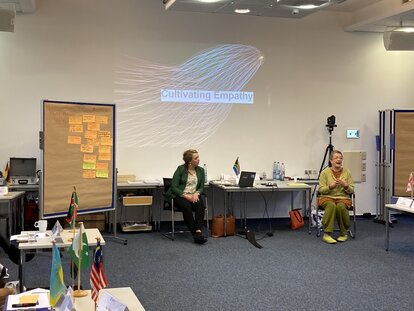
Facilitation and program design with empathy are like building trust. Trust is the glue that holds relationships together. Trust is our subjective opinion about how well another or others are likely to care for what matters most to us, otherwise known as our concerns. Trust flows in two directions. From us to the people we work and engage with. It is the basis from which we make decisions toward others and from which they make decisions toward us.
When we decide whether we trust someone, we usually consider some or all of the following components:
- Whether we think someone is sincere.
- Whether we believe someone is competent.
- Whether we think someone is reliable.
- Whether we think someone is fully involved.
To complete it, participants worked in smaller groups in the next session to plan an activity based on the actual case Marike had shared. Participants consciously practice what they learned over the past few days during this work. Listening to ignite, empathize with other people's ideas, structure programs structurally, and use various program design methods. It was two hours of working with lots of experience.
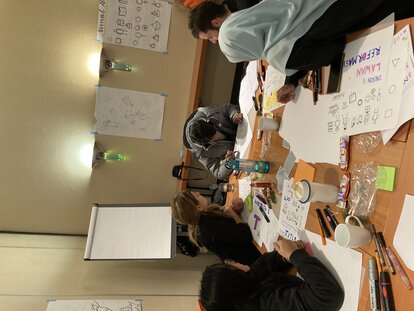
Not only at Theodor Heuss Academy, but participants also did an excursion to Berlin, Germany, to receive expert sessions as part of the training. Among them was meeting with Hussam Erhayel, Executive Director of the International Federation of Liberal Youth (IFLRY), who spoke about Enabling adult learning in political organizations. Hussam talked about non-formal education and what the trainer needs to know and do for a better output. The next is Linus Stieldorf, a Partnership Lead at masterpaln.com, and he talks about Working with Online Learning Trends.
Ilka Stein, a Project Manager at Circular Futures Project Together, talks about Mobilizing Large Groups into Action. Ilka tells the participants what they need to do when they want to mobilize a large group and conduct offline or online forums.
The next is Michael Meyer-Resende as, an Executive Director of Democracy Reporting International (DRI), that talks about Countering-Anti-democratic Trends through People Development. Michael talks a lot about their work in many countries, especially the South East region country. The last is the session with Wiebke Koch as a Graphic Recorder and Visual Facilitator. Wiebke talked about Visual Facilitation and taught participants how to use colored pencils, paper, crayons, and other visual tool kits in the facilitation process.
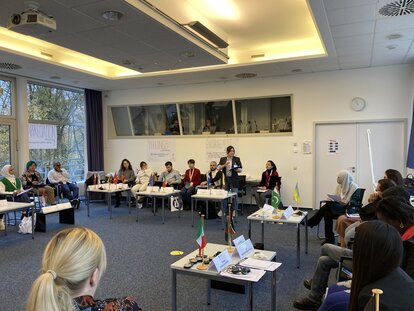
Facilitators will only complete program designing and activity by studying the feedback received in each process. Therefore each facilitator needs to be able to manage facilitation challenges and complicated scenarios. They include exploring additional difficulties, ideas, or opportunities. This method can help facilitators reflect on and evaluate the program.
In the last session before the end of the training, Trisha and Marike emphasized the value system that becomes an identity, either the identity of the facilitator, executor, organization, or program identity.
Values are emotions/feelings that we want to move towards. We need to know what these are to live authentic and meaningful lives. Not knowing these values can lead us as human beings or facilitators to experience internal conflict if we make choices that are not coherent with our values.
At the end of the closing activity, Bettina expressed her joy because all participants could participate well. He reminded the participants to apply what they had learned during the last twelve days in implementing the program in their respective organizations, including how to be a facilitator.
For Marike herself, on several occasions during the training, she tried various methods in program designing and facilitators until she found a technique that matched her values and ways.
One way is to be an empathetic facilitator. As Trisha said, empathy is intuitive and needs a lifetime of habit to cultivate.
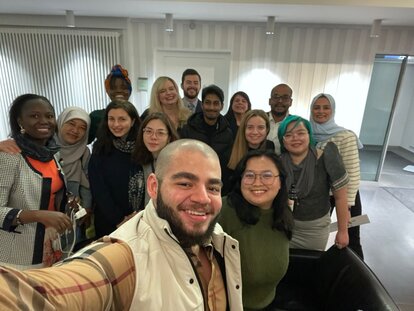
Moderation: The Facilitation and Program Design seminar is one of the trainings conducted by IAF regularly throughout the year. IAF also conducts other training such as 'Coalition Building and Strategic Partnerships, 'Liberalism vs. Populism: How can Liberals win?', 'Freedom of the Press - Challenges in the Digital Age' and many other pieces of training.
People can view complete information regarding training in 2023 via https://www.freiheit.org/iaf/iaf-seminar-2023
--------------------------
Written by Yuni Pulungan, FNF Indonesia partner from SEJUK and delegate for IAF Moderation and Facilitation Workshop.
